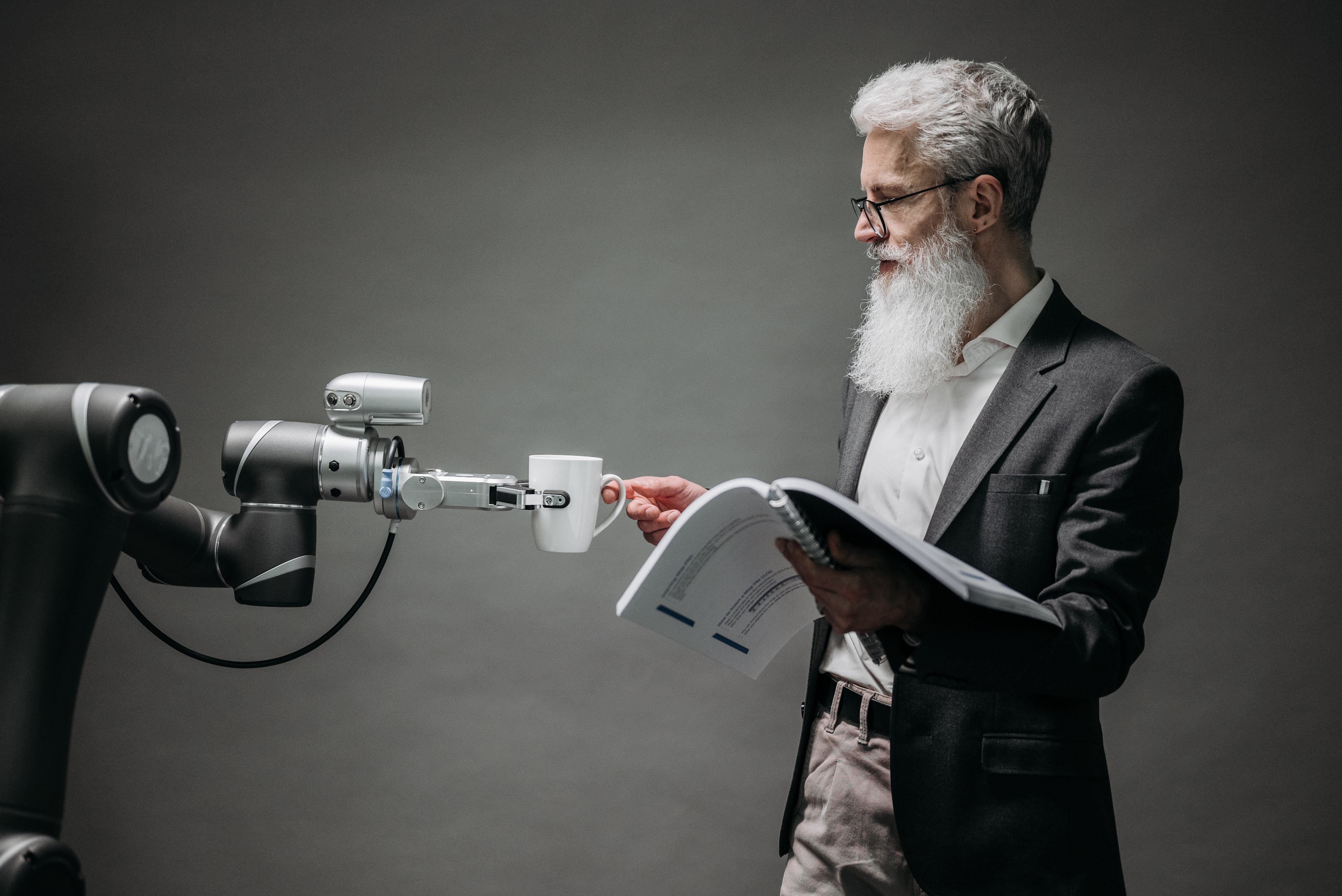The question: “Do robots take our jobs?” has many pitfalls
Interview with assistant professor Lilla Vicsek about the Hungarian Scientific Research Fund (OTKA) research of the “Visions about the relationship between artificial intelligence and society” conducted in the Institute of Communication and Sociology.

Could you introduce the project briefly, including this research and some of the results thereof?
The first part of the project is the theoretical foundation, a little introduction and brainstorming. It is a little provocative. If I had to summarise it very briefly, I would say that I examined why the popular visions for the future of work, which are prevalent in many societies and are present in our country as well are flawed, how they can be criticised for disregarding certain aspects, while other aspects are promoted. An ideal-typical view is that due to the development of artificial intelligence and robotics, an almost apocalyptic situation with high unemployment can be expected. The other view is almost utopian; it emphasises that many new jobs will be created and we will have better lives. Both approaches focus on the effects and presume a rapid and radical, transformative, revolutionary change.
These projections are based on flawed presumptions and disregard certain things. For this reason, the emphasis shifts to something else, thereby closing potential alternative courses of development. For example, the projections start off from technological determinism, which means that they focus on the impact that technology will have on the fact that it is an inevitable, uncontrollable. non-societal force that is not influenced by social factors but which influences the society. The question whether robots take our jobs has many pitfalls, and it is problematic for multiple reasons if the discussion about the future focuses only on this. It is beyond question that there is change. What is indeed a question is that within this, we focus on how to adapt to it or how to influence it? The technologically deterministic approach, which focuses only on the impact of technology, is blind to how society and technology mutually shape each other. Since it focuses on how to adapt to technological change, not how to shape it, it removes a vital aspect of our lives from public debate, choice, and politics. For example, the discussion about the future of work could be on how to develop the technology so that a good social, labour market situation is created…
Since the popular approaches focus on the future, the present needs to adapt to the future, prepare for it, furthermore, some of the problems of the present – such as how giant technology companies are developing these technologies with technocratic ideology – are left out of the discussion about the future of work. At the same time, it is also disregarded how some expectations themselves can have impact – for example, how Moore’s Law, which states that the performance of computer chips doubles every two years – and can act as self-fulfilling prophecies.
In addition, of course, I analysed the visions from other perspectives as well, the ones mentioned so far are just a few of the many aspects. The expectations related to technology have typical patterns, and many forecasts turn out to be wrong for similar reasons. I also covered how to move towards a better way of thinking about the future, both theoretically and methodologically.”
Was there any interesting finding or result during the research that you did not expect but proved to be true?
They considered it to a lesser extent that they might be helped by AI apps and not necessarily by another person in the future. In addition, we also experienced a kind of optimistic bias on their part, according to which “my work is so special, it requires so many special skills that it will not be taken over by automation or robots, but other people’s work might be taken over.” We asked students who did not study technology or science. In course of her interviews with Hungarian AI specialists, my doctoral candidate, Ágnes Horváth found it interesting – among other things – how surprised some IT professionals were that sociologists are also examining this issue, as if it were not natural or was not our job in their opinion. They considered the society mostly as a passive victim of the events.”
You approached this topic primarily from the sociology point of view?
This was another challenge because we should not approach what we hear in our day-to-day lives with critical thinking, but we must be open to embracing other disciplinary thinking and we should bring something out of it together. Because there are differences between the way an economist sees a problem and the way a sociologist sees it. At the same time, obviously there are differences within the specific disciplines as well, so it is important not to make the mistake of overgeneralisation. I feel we can get closer to reality if we approach any problem from several sides, so I do not stick to sociology.”

What will be the next step of the project?
Another next step is the application of qualitative future research methods. I am looking forward to this part of the project. As a sociologist, I also found it a very challenging that the future research methods represent a whole new field for me that I have not dealt with before. However, I was reassured that associate professor Alexandra Köves – who is also working here at the university and has very strong publications in the field of future research – is also participating in the project.”
Please introduce yourself and the field you are engaged in briefly!
This is how technological topics got involved. In my OTKA research at that time I analysed how the media appearance of different technologies that we do not talk about much on a day-to-day basis and of which we do not really have information – such as stem cell therapy and genetically modified plants – affects how people think about these technologies. I conducted focus group discussions and it was interesting that even though these topics were not really present in the media, they were still able to influence and have a detectable impact.
This was followed by another field, which was also related to technology: reproductive technologies. At first, one would think that it is a very particular topic, but in fact it affects quite a lot of people in Hungary as well, and a lot of people use different infertility treatments or artificial insemination procedures. We analysed several things in connection with this. We examined the existing views about the embryo during the artificial insemination procedure. In this research I also examined how young female university students think about their fertility and what they think about the artificial insemination procedure.
The next topics in line was the artificial intelligence and robots. At first, I thought that I would examine how the scientific fiction films influence how we think about the topic, but eventually the emphasis had to be put on something in the larger OTKA project, and we chose the world of work, since there are a myriad of exciting things to observe there. Fortunately, I have a research team to work together with, the members of which had been enthusiastic even before receiving the OTKA grant.
What I love about my work is the kind of freedom that allows me to start researching whenever something piques my interest. This is the third OTKA grant I received, and with the help of this grant I can implement these projects. I strive more and more for conducting not only basic research, which might not change the way of thinking, but for drawing conclusions which could potentially promote the social discourse about the topic concerned.”
Lilla Vicsek’s article is available at this link.